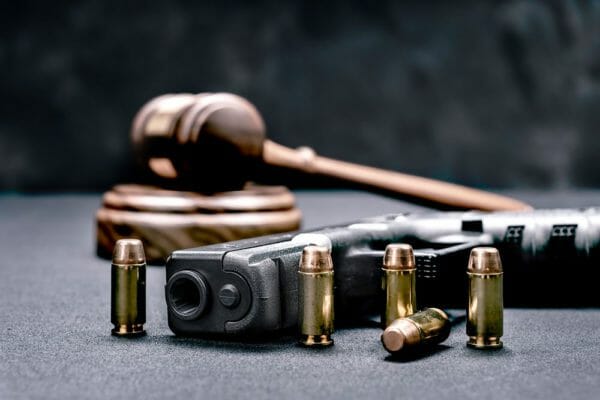
Gary v. Glock is a 24-year-old lawsuit that refuses to die. Attorneys for Brady filed the lawsuit on behalf of the City of Gary, Indiana, in 1999. At that time, more than 40 cities filed similar lawsuits, which sought to hold gun makers and gun dealers liable for murders that were committed using firearms.
Some of the manufacturers named as defendants included Glock, Smith & Wesson, Colt, Sturm Ruger & Co., Beretta USA Corp. and Hi-Point. Various gun dealers – national and local – were also named in the City of Gary lawsuit.
Fortunately, many states and the federal government passed laws to protect the firearms industry from this type of lawfare.
By 2006, almost all of these nuisance lawsuits were quashed – all except for Gary v. Glock.
The pesky lawsuit flared up again last month, when Indiana Superior Court Judge John M. Sedia denied an order to quash subpoenas for records maintained by several large Indiana gun dealers.
As a result, these dealers must now turn over their Acquisition & Distribution books to the government, which contain the names and addresses of hundreds of thousands of law-abiding gun purchasers.
Cabela’s has already complied, disclosing more than 200,000 transactions that occurred at its Hammond, Indiana store. Bass Pro Shops will soon be ordered to report the details of more than 200,000 transactions that occurred at its Portage, Indiana store. Other dealers will soon receive similar subpoenas.
Background
The firearms industry had several chances to kill the suit.
First, they appealed to the Indiana Supreme Court, which denied the companies’ motion to dismiss. They stated that if the City’s allegations were proven, the companies would be liable for damages and injunctive relief.
In 2005, the gun manufacturers tried again to dismiss the case by claiming it violated the federal Protection of Lawful Commerce in Arms Act (PLCAA). A state appellate court found that the City’s case was not “barred by the PLCAA,” because the gun dealers and gun manufacturers allegedly violated Indiana’s public nuisance laws.
In 2015, then-Gov. Mike Pence tried to help by amending Indiana’s immunity statute to make it retroactive to 1999 to cover the named defendants. But in 2019, Indiana’s Court of Appeals denied the defendants’ motion to dismiss, claiming that the amended statute did not protect the defendants from litigation.
In his order last month, Judge Sedia wrote:
“After reviewing the filings of the parties, hearing oral argument and being fully advised … Gary may move forward on its public nuisance claim based upon the unlawful sales of firearms that have, indeed, harmed Gary,” the order states.
Fallout
The potential publication of personal information of hundreds of thousands of law-abiding gun owners is eerily similar to an interactive map of pistol permit holders that Gannett’s Journal News of Westchester County, New York published in 2012.
The response to the newspaper’s map was vicious and loud. Outraged gun owners pushed for the publication of the addresses of the journalists responsible for the travesty. The danger, many claimed, was that the newspaper created a handy tool for burglars seeking to break into homes and steal firearms. The same concerns apply to Indiana’s gun owners.
Privately, some say state officials will likely turn over the data to federal agencies like the ATF, which has been surreptitiously creating an illegal registry of gun owners since Joe Biden took office.
For Indiana gun owners, the time to take additional steps to safeguard your property is now.
This story is presented by the Second Amendment Foundation’s Investigative Journalism Project and wouldn’t be possible without you. Please click here to make a tax-deductible donation to support more pro-gun stories like this.
About Lee Williams
Lee Williams, who is also known as “The Gun Writer,” is the chief editor of the Second Amendment Foundation’s Investigative Journalism Project. Until recently, he was also an editor for a daily newspaper in Florida. Before becoming an editor, Lee was an investigative reporter at newspapers in three states and a U.S. Territory. Before becoming a journalist, he worked as a police officer. Before becoming a cop, Lee served in the Army. He’s earned more than a dozen national journalism awards as a reporter, and three medals of valor as a cop. Lee is an avid tactical shooter.

from https://ift.tt/pHSlKw9
via IFTTT

No comments:
Post a Comment